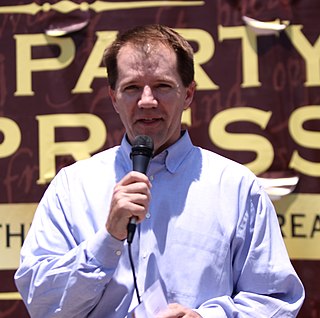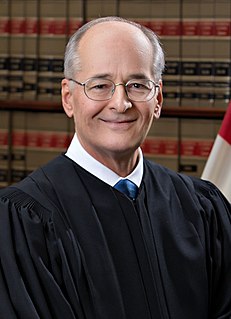A Quote by Clarence Thomas
The job of a judge is to figure out what the law says, not what he wants it to say. There is a difference between the role of a judge and that of a policy maker... Judging requires a certain impartiality.
Related Quotes
When I became a judge, I stopped being a practicing attorney. And that was a big change in role.The role of a practicing attorney is to achieve a desirable result for the client in the particular case at hand. But a judge can't think that way. A judge can't have any agenda, a judge can't have any preferred outcome in any particular case and a judge certainly doesn't have a client.
I think whether you are a judge on my court or whether you are a judge on a court of appeals or any court, and lawyers too - and if you're interested in law yourself, you'll be in the same situation - you have a text that isn't clear. If the text is clear, you follow the text. If the text isn't clear, you have to work out what it means. And that requires context.
People must be confident that a judge's decisions are determined by the law and only the law. He must be faithful to the Constitution and statutes passed by Congress. Fidelity to the Constitution and the law has been the cornerstone of my life and the hallmark of the kind of judge I have tried to be.































